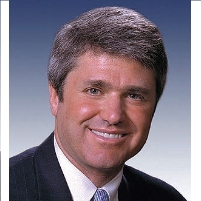130 Members of Congress Bought Stocks in Companies that Lobbied their Committees
Wednesday, June 27, 2012
 Rep. Michael McCaul
Rep. Michael McCaul
Unwilling to impose rules on themselves that they have on others in government, 130 congressional lawmakers have invested in company stocks while making legislative decisions impacting the very same corporate interests.
Federal laws adopted by Congress forbid officials in the Executive Branch from trading stocks in industries overseen by their agencies. But the same restrictions don’t apply to lawmakers.
As a result, during a three-year span, representatives and senators, 68 Democrats and 62 Republicans, traded stocks valued between $85 million and $218 million in 323 companies registered to lobby on legislation that appeared before them, according to The Washington Post.
The Post found that more than 5,500 trades “intersected with legislation” that a company cared about.
In a classic example, the family of Rep. Michael McCaul (R-Texas), who has a net worth of approximately $300 million, bought hundreds of thousands of dollars worth of stock in Thermo Fisher Scientific, which makes food contamination detection equipment, at a time that the Homeland Security Committee, of which McCaul was a member, was considering a food safety bill. The purchases were made while the company stock was selling for between $33.50 and $44 a share. The bill passed and the stock is now worth $50 a share.
“If you have major responsibility for drafting legislation that directly affects particular companies, then you shouldn’t be trading in their stock,” said Dennis Thompson, author of Ethics in Congress: From Individual to Institutional Corruptionand Restoring Responsibility: Ethics in Government, Business, and Healthcare, told the Post. “Committee chairs especially shouldn’t be in the position of potentially benefiting from trades in companies that stand to gain or lose from actions the committee takes.”
Research conducted by Georgia State University professor Alan J. Ziobrowski showed that the stock portfolios of members of Congress outperformed those of the average American investor---senators by 10% and representatives by 6%.
Former Congressman Brian Baird (D-Washington), who co-authored legislation in 2006 calling for more financial disclosure about lawmakers’ stock trades, remarked: “Congress has no problem imposing rules on others. We have a more difficult time doing it for ourselves.”
-Noel Brinkerhoff, David Wallechinsky
To Learn More:
Members of Congress Trade in Companies While Making Laws That Affect Those Same Firms (by Dan Keating, David S. Fallis, Kimberly Kindy and Scott Higham, Washington Post)
Overlapping Interests (Washington Post)
Congressional Rules on Trading Had Their Start in 1789 (by Kimberly Kindy, Washington Post)
Members of Congress Increased Personal Wealth 25% in Two Years (by Noel Brinkerhoff, AllGov)
- Top Stories
- Unusual News
- Where is the Money Going?
- Controversies
- U.S. and the World
- Appointments and Resignations
- Latest News
- Musk and Trump Fire Members of Congress
- Trump Calls for Violent Street Demonstrations Against Himself
- Trump Changes Name of Republican Party
- The 2024 Election By the Numbers
- Bashar al-Assad—The Fall of a Rabid AntiSemite






Comments